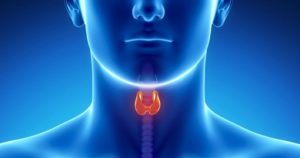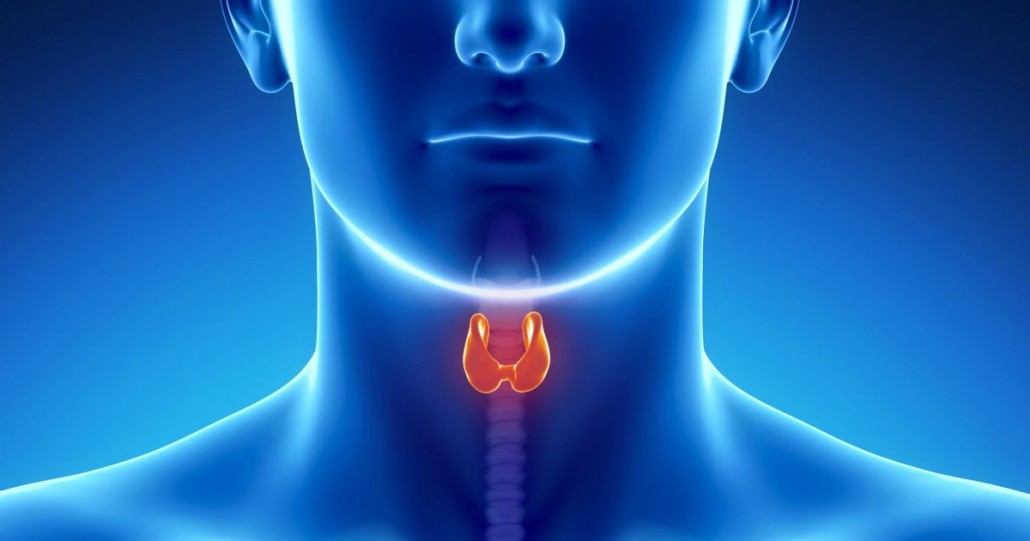 Hypothyroidism disease is becoming one of the most common auto immune (AI) conditions we see today. Patients seek my clinical counseling for this problem or we discover with testing, that it is in fact a part of a patients’ challenge to some degree. This equates altogether to approximately 25% of my practice, overall. A very significant increase in the past 5 years.
Hypothyroidism disease is becoming one of the most common auto immune (AI) conditions we see today. Patients seek my clinical counseling for this problem or we discover with testing, that it is in fact a part of a patients’ challenge to some degree. This equates altogether to approximately 25% of my practice, overall. A very significant increase in the past 5 years.
In this AI disease the body’s immune system mistakes healthy thyroid tissue as foreign and a potentially dangerous invader into the body and attacks it.
The thyroid gland is a butterfly-shaped gland found inside your neck, right under your larynx or voice box. A two-inch long, dark red, highly vascular organ that has two lobes fanning out to each side of the windpipe just below the Adam’s apple.
Your thyroid is responsible for producing the master metabolism hormones that control vital energy metabolism and protein synthesis in every cell of the body. The two main hormones secreted by your Thyroid are Thyroxine (T4), which is then converted into Triiodothyronine (T3), the active form that drives these functions in each cell of the body.
Hypothyroidism is of course, low thyroid production and can contribute to weight gain, a feeling of always being cold, hair loss, dry skin, lethargy, and depressive mood states. – There’s no fire burning!
The thyroid hormones are made up of Tyrosine (an amino acid) and also partially of Iodine (the heaviest Halogen (mineral nutrient)). – A deficiency of iodine leads to decreased production of T3 and T4 hormones and is called primary hypothyroidism. This deficiency also will cause the thyroid tissue to enlarge and will cause a disease known as simple goiter.
Worldwide, over 90% of goiter disease is caused by Iodine deficiency.
Hyperthyroidism is an increase in these hormones we see mostly with “Grave’s disease”, another auto-immune condition.
The more prevalent auto-immune condition seen in practice is certainly, Hashimoto’s associated with the secondary, most prevalent contributor to clinical hypothyroidism.
Hashimoto’s in time, destroys the gland and in the beginning there may be no signs or symptoms. As the gland is not functioning and is breaking down though it can enlarge and a goiter can eventually form with this disease too.
Suboptimal thyroid function or production may be a result of genetics. More we are seeing the effects of exposure to environmental toxins like just drinking chlorinated or fluorinated water as increasing contributing factors. Eating brominated flour which is now found in a significant percent of bakery products. – Chlorine, Florine and Bromide are in the same class of minerals in the Periodic Chart as Iodine called Halogens (remember high school chemistry?). These three halogens are not essential, human nutrients and can be toxic. The issue is they share similar chemical properties as Iodine and when present in your diet can displace the Iodine in your thyroid gland causing dysfunction.
There are other, negative environmental factors that can expose us to hypothyroidism; smoking, radiation, PCBs and gluten. Yes, gluten. Eating it can elicits an immune system attack in growing numbers of us. These antibodies do not discriminate and attack the thyroid gland as well. –this is an “Auto Immune” attack.
It is not always just Iodine that needs to be added to the diet to correct thyroid disease as there are other clinical factors to consider. Among them, other support minerals are important to the thyroid; zinc, copper and manganese. Evaluation of these levels help to further identify the status of thyroid disease. According to the National Institute of Health selenium has also proven an important protective, deterring factor in Hashimoto’s Thyroiditis.
Levels of circulating T4 and T3 present are indicative of how the gland is functioning. From blood tests we can see levels of the “reverse”, rT3 hormone which expresses iodine availability and absorption in the body and particularly how toxicities and deficiencies may be effecting the cycle. When rT3 is found to be abnormally high natural nutritional applications involving not just the functional minerals have been found extremely effective in balancing out the levels.
I feel the largest contributor to our decreased intake of Iodine and thus “basic” thyroid dysfunction is its decreased availability in the last 50 years in our food supply. The average, daily intake of iodized salt is barely enough to keep us from a hypo. state! – And this is cited as the #1 source of intake in the US. Other sources are also; shell fish, fish, and foods grown in rich mineral (Iodine) soil. It used to be eggs and some grains too but now that much of the soil is deficient the amount of this mineral in these foods has also decreased. And of course, if you factor in all of the dietary restrictions based on medical conditions or different vegetarian preferences intake is going to vary.
So, as Iodine is a factor in basic thyroid functioning it is NOT always the correct “go to” for thyroid disease treatment. One should always get a comprehensive work up; exam, blood work and a careful patient history taken before proceeding with any treatment. With these results holistic nutritional therapies may be applied that have been consistently successful in the management of hypothyroidism.

